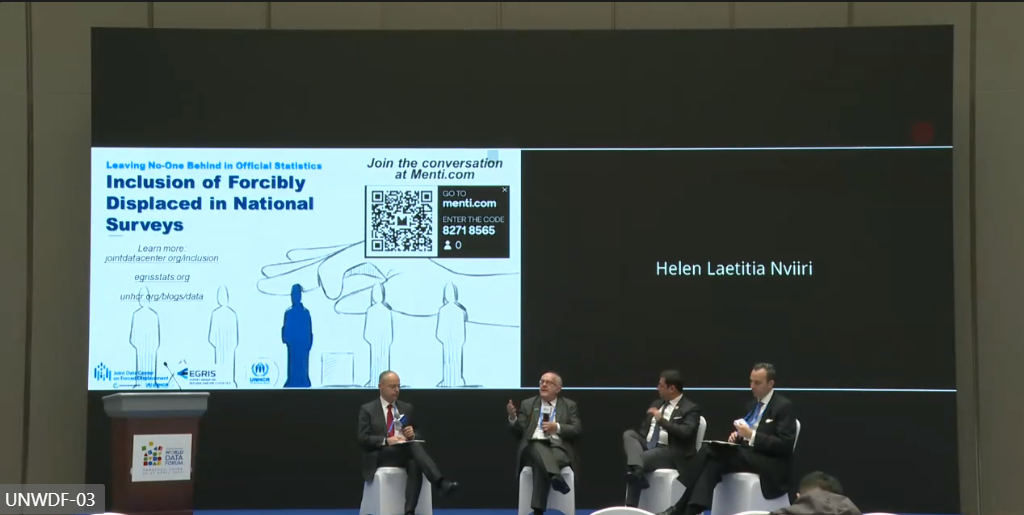24th and 27th April 2023
The EGRISS was excited to take part in the 2023 United Nations World Data Forum (UNWDF) in Hangzhou, China. The group was involved in the organization of three events, which together contributed to the Forum’s objectives by highlighting the added value and key opportunities to improve national data on stateless persons, IDPs and refugees in the broader context of strengthening development data.
On 25th April, EGRISS and the Joint IDP Profiling Service (JIPS), the United Nations Statistics Division (UNSD-DESA) and the United Nations Statistical Institute for Asia and the Pacific (UNSIAP) co-organized a ‘Learn Lab’, which benefitted from expert facilitation from UNSD and the World Bank-UNHCR Joint Data Center on Forced Displacement (JDC). The on-site, interactive session titled ‘Including refugees and IDPs in national statistical systems: Why and How?’, aimed to share practical guidance on how to include refugees and IDPs into existing workstreams of National Statistical Offices. The session built on the International Recommendations on Refugee and IDP Statistics (IRRS and IRIS) and helped to raise awareness about EGRISS’ new e-learning.
Later the same day, a hybrid session to introduce the International Recommendations on Statelessness Statistics (IROSS), ‘Including the excluded: better data on statelessness’, was held. Different perspectives were featured, drawing attention to the implementation of international recommendations and the added value of data given the lived experiences of stateless persons through the example of the United States of America. The session was co-organized by EGRISS, JDC and UNHCR, with speakers including the Philippine Statistics Authority (PSA), United Stateless, UNHCR, JDC and EGRISS Secretariat.
Finally, another hybrid event co-organised by the EGRISS, JDC and UNHCR on 27th April opened with the screening of a short animated video and a call to action. The hybrid panel discussion ‘Leaving no-one behind in official statistics: Inclusion of forcibly displaced in national surveys’ included speakers from the Uganda Bureau of Statistics, Geostat, UNICEF, World Bank, UNHCR, JDC and EGRISS Secretariat. It covered recent achievements, challenges, and opportunities regarding the inclusion of refugees and IDPs in national surveys, including the MICS in Georgia and the DHS in Uganda. The session emphasized the importance of national ownership of data and encouraged the international community to more systematically support countries in these efforts given existing political and financial challenges.
Overall, the need for reliable national statistics on refugees, IDPs and stateless persons was highlighted and the contribution of many EGRISS country and institutional members was showcased to Forum participants.
Relevant Resources:
Event ‘Including the excluded: better data on statelessness’ Recording

